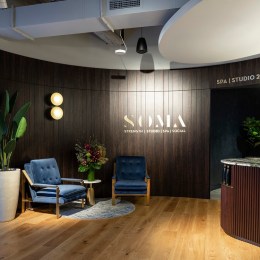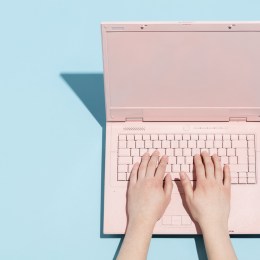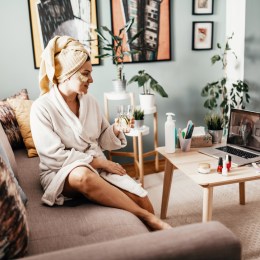The digital age is rewiring us. It’s already changed the way we shop, work and play. But it’s also having an insidious effect on physical and emotional health.
At the Global Wellness Institute’s Round Table in New York last year, one of the key topics of discussion was How Technology – Enabling 24/7 Work – Is Killing Us.
“Technology has spawned new, global work realities: imprisonment by screens, and a powerful erosion of the line between now always-on `work’ and `life’,” a GWI paper recapped after the event.
Searching websites, texting, checking emails and uploading to social media sites has become, in some ways, an essential preoccupation to keep abreast with one’s job and competitors, grow a business and just stay relevant and attractive to clients and consumers at large.
But the downside is that it can easily infiltrate every part of a person’s life – whether you are a business owner or team member – to a debilitating degree. In essence, it becomes addictive behaviour, hard-wired into the psyche, and as difficult to tackle as perhaps alcoholism, gambling and compulsive eating.
Harvard Medical School scientists have found that “using a cell phone or laptop before bed can disrupt the body’s production of melatonin and negatively affect sleep quality”.
Another study published by the Public Library of Science found that “the more time a person spends on Facebook, the more dissatisfied they ultimately feel with their own life”.
“Assembled experts agreed that we have not yet begun to grasp the wide-ranging impact on employees’ physical and mental health – and productivity,” said the GWI paper.
“Shawn LaVana, head of marketing, Virgin Pulse, said: `We’re checking our smartphones 150 times a day. How focused can we really be? All of this time in front of screens, for work and in our personal lives, means we’re not exercising and eating well. All of this feeds into a vicious cycle of poor health choices. These are negative habits we’ve built, but we can build positive habits in the same way’.
“James Brewer, workspace consultant for Steelcase, added: `The disintegration of work-life boundaries is also being driven by globalisation. 24/7 connectivity is making the divide between work and life a blur, where people are constantly `on’. The roundtable heard that `this is killing us’. When you have teams distributed worldwide, you have new realities like workers having to virtually collaborate with colleagues and business partners in the middle of the night.’
“Brewer also noted that there seems to be a dichotomy in policy approaches to work-life balance between small start-ups and larger, more established organisations.
“The start-ups appear to be more proactive in implementing policies that help their employees define when it is okay to `turn it off’ and disconnect (ie. no emails in the evening or work-free vacations).
“On the other hand, these types of policy approaches are largely absent in larger companies.”
So what does this mean for the salon, spa and clinic industries?
There are two key streams:
- If you are a business owner encouraging e-interactivity to drive business, and to keep connected with staff during and after hours, looking out for the wellbeing of your team will become a priority in this respect. Or, if a team member, so will taking responsibility for monitoring and drawing lines around your own e-activity, to ensure it stays within healthy bounds. Easier said than done, of course. Which is where a new era of “digital detox” philosophies and services is fast gaining ground.
- In-treatment services at salons, spa or clinics aimed to create safe havens for clients/consumers (more emphasis on the “hands-on” approach than “express” services for the time-poor). Or dedicated off-site programs.
One such program is the Digital Detox Retreat hosted by spa industry veteran, life coach and Aurora Spa founder Lyndall Mitchell at Bali’s Alila Villas Soori resort, June 17-19.
“If you have become a slave to your digital devices, this [program] brings you the perfect opportunity to find a healthy balance between staying connected and switching off,” she says.
“The weekend retreat will focus on imparting practical skills and strategies to reduce stress and distractor influences, showing you how to enjoy a more positive and healthy integration of technology in your life.
“It will include a series of master classes designed to help reduce tech overload and improve quality of life:
- Get back to basics in Unplugged, discovering how to effectively unplug and establish foundations to de-clutter, de-stress and simplify life.
- Connect and Reflect identifies daily drainers and the personal “technology” wheel of balance, aiming to create effective boundaries for a sustainable digital relationship.
- Hardwiring Happiness will create a personal focused Future Map, to be the best version of self with technology.




